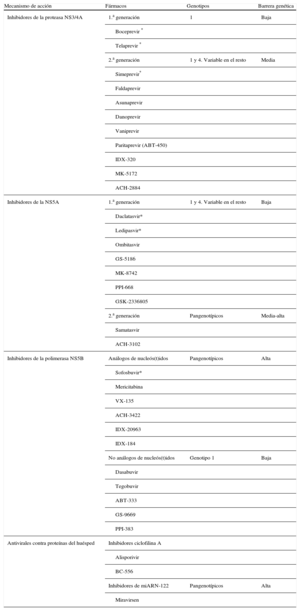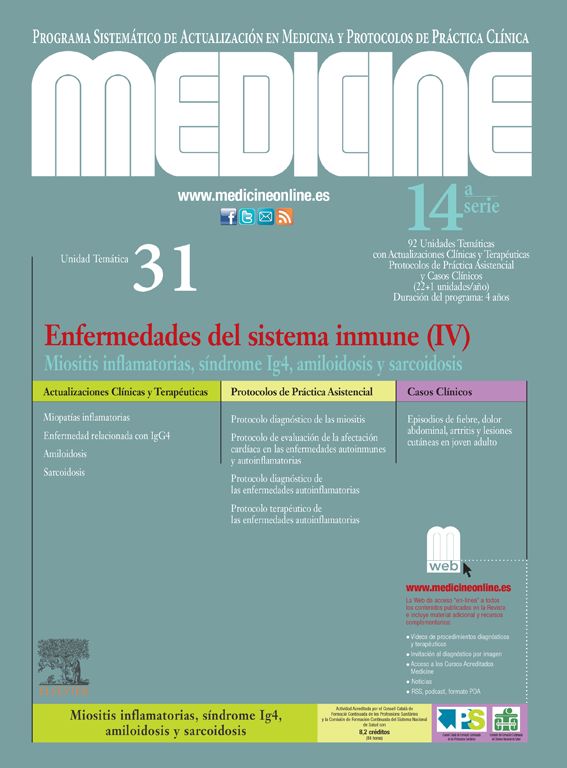La infección crónica por el VHC constituye un problema de salud de primer orden. En los últimos 5 años, ninguna área de la hepatología ha experimentado una revolución de tal calibre como el tratamiento de la hepatitis C. Los avances en el conocimiento de los mecanismos moleculares implicados en el ciclo celular del virus han permitido el desarrollo de una nueva familia de fármacos conocidos como antivirales de acción directa (AAD). A diferencia del tratamiento clásico con interferón-α y ribavirina, estos nuevos agentes bloquean proteínas virales de forma selectiva y dirigida. Gracias a combinaciones de estos fármacos, entre los que puede estar incluido o no el interferón-α, los ensayos clínicos más recientes obtienen una tasa de respuesta viral sostenida superior al 90% en la gran mayoría de los pacientes. Además, la administración oral y la baja tasa de efectos adversos los sitúan como el tratamiento de primera elección. Desafortunadamente, ahora que tras tanto esfuerzo la ciencia parece haber ganado la batalla, surge un nuevo contratiempo quizás igual de peligroso y difícil de vencer: su coste. El objetivo de este artículo es revisar de una forma clara, sencilla y concisa el panorama actual del tratamiento del VHC; haciendo especial hincapié en las propiedades farmacológicas y en la utilidad de los nuevos AAD.
Palabras clave
Chronic hepatitis C infection is a health problem of the highest order. In the last 5 years, no hepatology area has experienced a revolution of such caliber as the treatment of hepatitis C. The advances in understanding the molecular mechanisms involved in the virus’ cell cycle have enabled the development of a new family of drugs known as direct-acting antivirals (DAAs). Unlike classical treatment with interferon-α and ribavirin, these new agents selectively and directly block viral proteins. Thanks to combinations of these drugs, which can include interferon-α, the most recent clinical trials have obtained a sustained viral response rate >90% in the considerable majority of patients. Additionally, their oral administration and low rate of adverse effects place them as the treatment of first choice. Unfortunately, now that science appears to have won the battle after so much effort, a new problem arises that is perhaps equally dangerous and difficult to defeat: its cost. The objective of this article is to clearly, simply and concisely review the current panorama of the treatment of HCV, placing special emphasis on the pharmacological properties and usefulness of the new DAAs.
Keywords
Identifíquese
¿Aún no es suscriptor de la revista?
Comprar el acceso al artículo
Comprando el artículo el pdf del mismo podrá ser descargado
Teléfono para incidencias
De lunes a viernes de 9h a 18h (GMT+1) excepto los meses de julio y agosto que será de 9 a 15h




